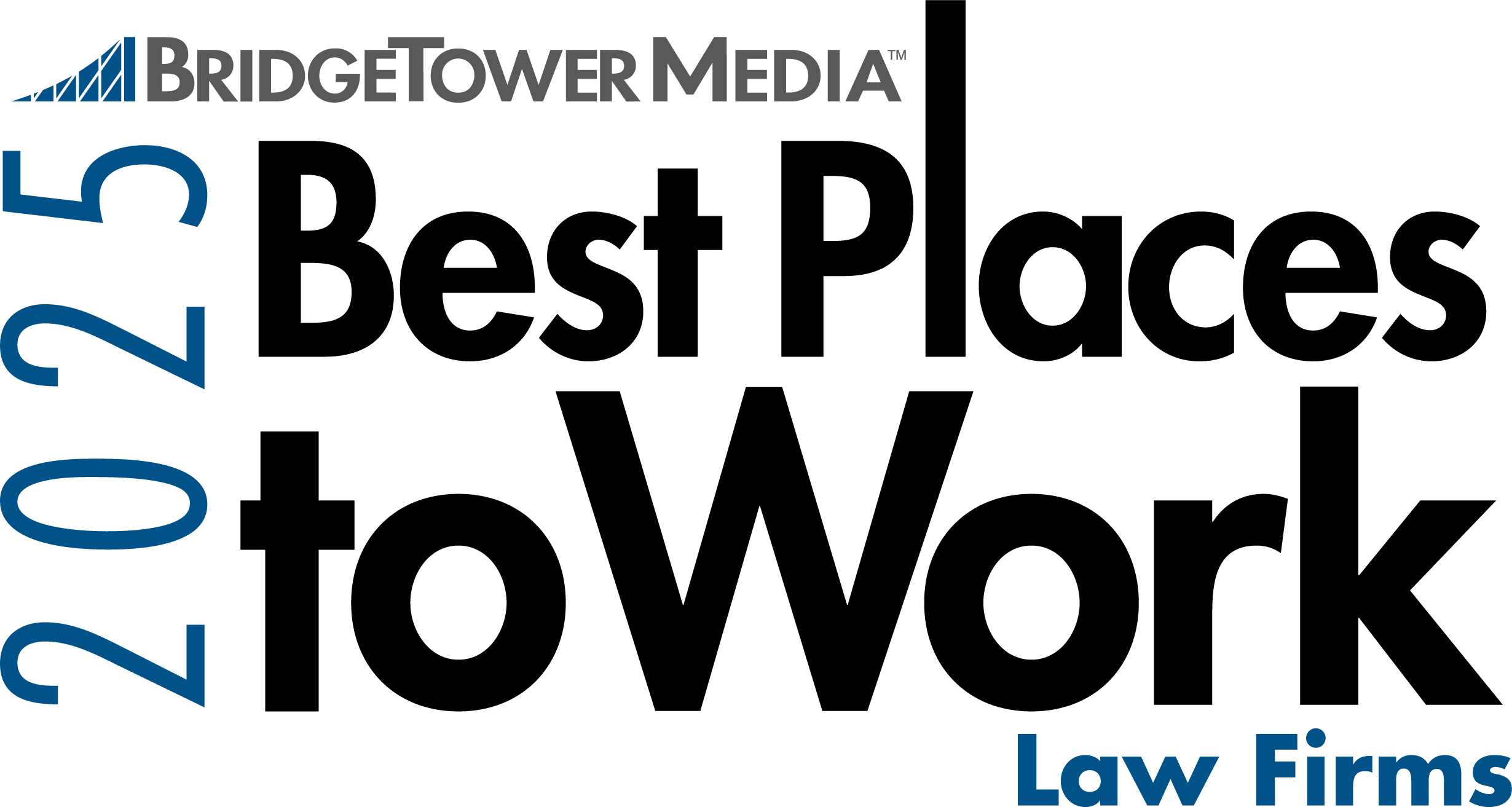If you file a personal injury claim, liable parties may fight your claim. You can avoid facing the many challenges in completing a personal injury claim successfully by hiring a personal injury lawyer to represent you.
Personal injury claims are rarely easy to win without a lawyer. If you deserve compensation but don’t have the experience, knowledge, time, or energy to complete your own claim, hire a Cape Girardeau personal injury lawyer to fight for your financial recovery.
What Is a Personal Injury Claim?
A personal injury claim formally states that someone else’s negligence caused you bodily harm. A personal injury claim may also include pain and suffering, encompassing all the psychological and emotional harm from your physical injuries.
While many accident victims file auto insurance claims that request compensation for medical expenses and other losses, these claims generally cover only bodily injury.
A personal injury claim can account for bodily injury and injuries beyond the physical body. For example, you may file a personal injury claim because you suffered significant emotional distress.
When Is a Personal Injury Claim Necessary?
A personal injury claim may be necessary when insurance does not adequately cover harm from injuries, illness, or wrongful death.
Insurance is not always enough in these circumstances because:
- Insurance does not cover certain events – Some harmful events do not fall under any type of insurance coverage. A responsible party may lack insurance even in circumstances that normally entitle a victim to insurance benefits (such as a car accident). In these cases, you may need to file a personal injury lawsuit to recover compensation.
- An insurance policy may not cover your specific losses – As an example, an insurance policy may cover bodily injury but not psychological trauma. Filing a personal injury claim may allow you to seek compensation for losses the insurance policy does not cover.
- Coverage limits can restrict the effectiveness of insurance claims – Insurance policies typically have coverage limits, which are the maximum amount of compensation you can recover through an insurance claim. You may need to file a personal injury claim to seek compensation beyond a policy’s coverage limits.
An attorney will review your circumstances and explain whether you should file a personal injury claim. If so, your attorney can prepare, file, and resolve the personal injury claim on your behalf.
Types of Events That May Lead to a Personal Injury Claim
Many events may lead you (or your lawyer) to file a personal injury claim, including:
- Car accidents, which cost hundreds of billions of dollars each year and impose immense economic and non-economic costs on victims
- Other traffic accidents, including truck accidents, motorcycle accidents, and pedestrian accidents
- Slip and fall accidents
- Trip and fall accidents
- Certain accidents in the workplace
- Injuries caused by a defective product
- Animal attacks
- Criminal assaults
- Exposure to dangerous chemicals
- Medical malpractice
- Nursing home abuse or neglect
These are just some of the many cases that prompt victims to hire an attorney and file a personal injury claim.
You May File a Claim If You Suffered Injury, Developed an Illness, or Lost a Loved One
An attorney may take legal action on your behalf if:
- You personally suffered injury or developed an illness because of someone else’s negligence
- Your loved one suffered injury or became sick due to someone’s negligence, but they cannot hire an attorney on their own
- You lost a loved one because of someone’s negligence
Negligence is the failure to act as a reasonable person should in the same circumstance. Your personal injury lawyer will review all relevant facts and evidence and explain whether you have grounds for a personal injury or wrongful death claim.
What’s the Process of Completing a Personal Injury Claim Like?
- Filing a complaint: The technical legal term for a personal injury lawsuit is a complaint. Your attorney will prepare and file the complaint on your behalf, as they’ll know the process and understand which court should receive your complaint.
- Settlement negotiations: Once your lawyer has filed a personal injury claim, they may attempt to negotiate a settlement with an insurance company or another liable party.
- Discovery: If initial negotiations do not produce a fair settlement offer, the legal process will proceed to the discovery phase. At this point, the plaintiff and defendant will exchange details about the assets they plan to use during the trial, such as witnesses and evidence. This enlightening process puts everyone’s cards on the table and may change either side’s views on the need to settle.
- Resumption of settlement negotiations: Before the trial formally begins, the judge may encourage all sides to try negotiating a settlement one more time. Sides may even agree to arbitration or another third-party-assisted negotiation type.
The trial may follow if your claim reaches this stage without settling.
What Happens If a Personal Injury Claim Goes to Trial?
If your personal injury case proceeds to trial, your attorney will be ready to fight for your financial recovery in court.
Completing a trial generally requires a personal injury lawyer to:
- Present evidence of liable parties’ negligence: The evidence your lawyer presents will depend on the details of your case. For example, cell phone records may help prove that a distracted driver was on the phone when they caused your accident. Your lawyer will present and explain the importance of any evidence that helps prove the liability of negligent parties.
- Question favorable witnesses: Your attorney may compile a list of witnesses whose testimony will support your case. This may include both eyewitnesses and expert witnesses. Your attorney will question these witnesses to extract the testimony that can benefit your personal injury claim.
- Cross-examine defense witnesses: If the defendant’s attorney presents witnesses, your lawyer may cross-examine them to find flaws in their testimony. Your attorney may even elicit answers that make a defense witness into a witness whose testimony favors your claim.
- Present documentation of your damages: Eventually, your lawyer will present documentation showing how the defendant’s negligence caused you harm. Such documentation may help the jury determine how much compensation you are entitled to.
Your lawyer will also file motions, object to unacceptable actions or questions by the defense, and oversee every other detail of your case. Your attorney may have completed many trials for personal injury claimants, so they’ll know how to represent you capably in court.
Your Attorney May Continue Negotiating a Settlement During the Trial
Even once a trial starts, your lawyer can continue negotiating a settlement with the party you’re seeking compensation from. This means a trial can stop abruptly because your attorney negotiates an acceptable settlement—rendering the remainder of the trial unnecessary.
What Role Does an Attorney Play in Completing a Personal Injury Claim?
In addition to trial-specific duties, a personal injury lawyer will play several critical roles in completing your personal injury claim. Whenever a personal injury attorney represents someone who suffers an injury, sick, or mourning the wrongful death of a loved one, the lawyer typically:
Shields the Client from Rights Violations
An attorney is a line of defense between their client and insurance companies. If an insurance company finds a way to violate your rights, it can save them substantial money.
Without an attorney to protect you, an insurance company may:
- Persuade you to make a recorded statement before you’re prepared to do so
- Ask you intentionally confusing questions
- Attempt to have you admit fault for your injuries (even if you are not truly at fault)
- Offer you a lowball settlement and pressure you to accept
Personal injury attorneys are familiar with these and other bad-faith tactics from insurers. Your lawyer will communicate directly with insurers, so you have as little exposure to bad-faith tactics as possible.
Builds the Case With All Available Evidence
Your lawyer will move quickly to obtain all evidence that benefits your case. The evidence they pursue will be specific to your case type.
A lawyer may interview employees or residents who witnessed abuse in a nursing home abuse case. In a car accident case, an attorney may obtain traffic camera footage showing the collision.
With strong evidence, a lawyer may enter settlement negotiations from a position of strength.
Documents the Client’s Damages
Your attorney will document each of your damages.
Useful documentation may include:
- Expert testimony about the harm you suffered, including injuries and mental health struggles
- Medical records detailing your injuries
- X-rays, MRIs, and other scans showing the nature of injuries or an illness
- Invoices for any property expenses (such as vehicle repairs or temporary transportation)
- Proof of your income before you became injured or suffered an illness
A lawyer may seek additional (or different) forms of documentation in a wrongful death case, including:
- Bills for funeral expenses
- Bills related to grief counseling, medications, and any other treatment surviving loved ones receive
- Surviving loved ones’ accounts of the toll the wrongful death has placed upon them
- Proof of the decedent’s income, which may help prove the financial cost of their death
Your lawyer will want as much documentation as possible during settlement negotiations.
Calculates the Target Settlement Value
A lawyer can only obtain a fair settlement if they know the exact cost of their client’s damages. Therefore, your lawyer will calculate the cost of both your existing damages and any damages you’ll likely experience in the future.
Lawyers can accurately calculate and justify non-economic damages, but most others cannot. Your lawyer may use the multiplier or per-diem methods to calculate the cost of your non-economic damages (including pain and suffering).
Negotiates a Settlement on Their Client’s Behalf
Personal injury lawyers seek settlements for their clients, and settling is the most common way of resolving a personal injury claim. An insurance company may intend to pay as little as possible, making the negotiation process grueling.
Your lawyer will rely on evidence and documentation to justify their settlement demands.
Completes a Trial (When Necessary)
Though most personal injury claims do not proceed all the way to trial, a significant number of them do. If your case ends up in court, your lawyer will make your case and request that a jury award you a fair sum for your damages.
Damages You May Seek Compensation for Through a Personal Injury Claim
Damages are specific to each plaintiff. Different case types tend to produce different damages, too. For example, a car accident victim may need compensation for vehicle repairs, while a fall victim may need money to repair a broken hip.
Your lawyer will evaluate your damages and may find that you suffered:
- Medical expenses
- Pain and suffering
- Professional damages, including lost income, missed bonuses, lost retirement contributions, and diminished earning power
- Property expenses
- Other damages
You may have additional damages, and your attorney will create a detailed record of every one.
What’s the Cost of Hiring a Lawyer for a Personal Injury Claim?
Personal injury lawyers minimize the financial cost to their clients and do so by using contingency fees.
A contingency fee means that:
- You don’t pay the law firm any upfront fee
- The law firm covers every expense, including filing and expert fees
- The law firm fights for your financial recovery
- If the firm wins your case, your lawyer receives a percentage of your financial recovery
If the law firm fails to obtain compensation, you won’t pay a cent for legal services.
Don’t Wait to Find the Right Personal Injury Lawyer for Your Case

Jacob D. Lawrence, Personal Injury Lawyer in Cape Girardeau
Most personal injury claims have strict filing deadlines, so don’t wait to hire a personal injury attorney with experience handling complex personal injury cases. The sooner you retain a law firm, the sooner they can begin fighting for your financial recovery. They can meet all statutes of limitations and insurance deadlines, and provide peace of mind that someone is protecting your rights.



